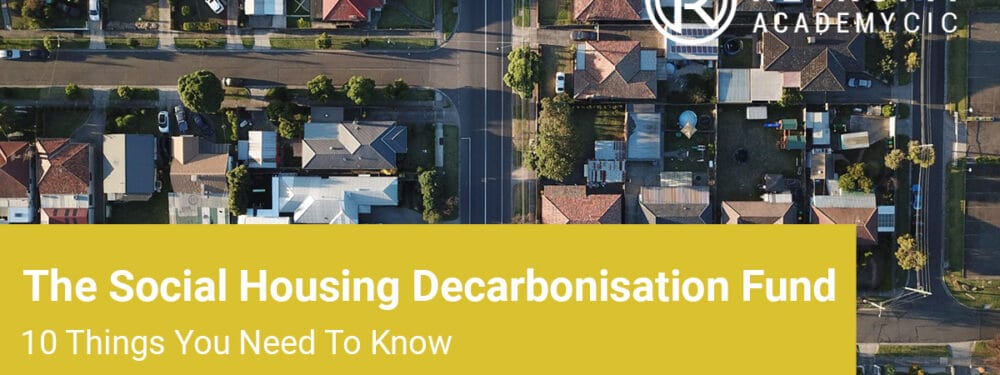
The Social Housing Decarbonisation Fund: 10 things you need to know
Of the 26 million or so homes that need retrofitting in the UK, 4.1 million are social housing properties, and of those, 1.6 million perform poorly at below an EPC C rating. The result of this is cold, damp, and expensive to run homes for many families already living on low incomes. It also means repeat repair visits and, in some cases, disrepair claims that could run into many £thousands.
Here at The Retrofit Academy, we understand the challenges that Social Landlords and Local Authorities are facing. And, we recognise those providers who are grappling with their strategic responsibilities while also considering those homes that are not under the governance of a good, registered provider.
We want to help registered providers and local authorities be ready to benefit and maximise the opportunity to get retrofit at scale. Take a look at our Top 10 things you need to know.
The Top 10
- The competition is the most recent round in a funding stream that the government has suggested will be £3.8 billion over ten years from 2019.
- This current round is known as Wave 1 and opened on 23rd August 2021. Bids must be in by 15th October 2021, with some projects possible to commence early 2022 and complete by Jan 2023.
- The work allowed in this round is shallower than those in the previous demonstrator round. (And its predecessor, the Whole-House Retrofit fund).
- Fabric First principles are crucial. Homes targeted will be EPC D or less. Higher grant caps are available for the lower bands.
- Some Band C’s can be included but only to a max of 30% of the homes in a scheme and if leaving these out is problematic (for example, a middle, mid-floor flat).
- Landlords must have a clear plan for how they will effectively engage residents.
- The bids should target fuel-poor households. Estimates are that this round will reduce residents’ energy bills by an average of £170 per year.
- The funding provided is based on 60%, but there is a sliding cost cap.
- All property types are allowed.
- The delivery of all projects must be PAS2035 compliant.
- The Retrofit Academy is developing a bespoke program for Social Housing to help achieve all of these requirements in this or subsequent funding rounds.
We want to help registered providers and local authorities be ready to benefit and maximise the opportunity to get retrofit at scale. If you have any questions, we recommend that you take a look at these helpful webinar slides, read the guidance below, or give us a shout at [email protected] and one of our Social Housing team will give you a call.
